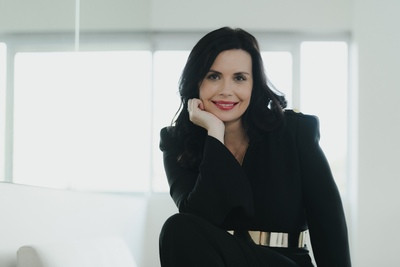
Vanessa Stoykov: 5 questions that could save you thousands
- Posted by Palladium Wealth Partners
- On March 15, 2022
- 0 Comments
We are pleased to share with you a special piece from renowned Australian money educator Vanessa Stoykov.
Below, Vanessa shares five simple questions worth asking yourself that could very well save you thousands of dollars—and, in turn, help you to save for a better future.
5 questions that could save you thousands by Vanessa Stoykov
1. Is this the best (or most appropriate) product or service I am getting (or can get)?
It sounds basic, but we often don’t ask the question. The first port of call may be your private health insurance, utilities, and phone and internet—and potentially your super fund.
For example, I realised that I was paying for maternity cover on my private health insurance long after that horse had bolted! Nobody ever stopped to ask me whether I still needed it, and I never asked the question. When I did, I saved myself over $100 per month—that’s $1,200 a year saved for asking the question, ‘Is this the best (or most appropriate) product or service I am getting (or can get)?’ Same with your utilities, phone, and internet providers—consider asking, if it will be cheaper if they organise a contract with you, if you can get a discount for paying direct debit, or any other promotion or plan they have that can save on your bills. This could put major dollars in your bank account rather than theirs.
Importantly, prior to making any financial decision, it’s vital to consider taking the time to properly compare features, costs, and benefits (internally and externally of your existing provider)—and seek qualified professional advice, if needed.
2. How much can I invest in myself?
For years I have worked on the adage to pay myself first. This can be hard when you have a whole bunch of things to pay for. Usually, we pay whatever we need to, and whatever we have left is what we live on. This is ineffective because we are putting ourselves last—and to get ahead, you need to put yourself first. Some have a rule of 10% of their earnings they put away before anything else gets paid. The key is to ask yourself, ‘What am I worth, and how can I invest in myself more?’ Once you have done this, then consider opening a savings account that’s hard to touch, and have the determined amount transferred to it each pay cycle! In a few months, you won’t even notice it’s gone, and you will have a tidy savings egg building up—and that feels good.
3. Do I really need this (and if so, do I need it now)?
I know, usually, we believe we do, but it’s a great question to ask yourself when shopping. This can be especially the case if you intend to put the item on your credit card (or use a buy now, pay later service provider). If you don’t have the cash to pay for it, and it’s not a burning, critical, or must-have item, really question whether you need it. Because putting things on credit can just increase the burden on you to keep working just to pay it back. Start thinking of how to make what you have last longer (or go further), and consider cutting back on what you are spending your money on, especially in terms of day-to-day items.
4. Can I get this cheaper by buying online or in bulk?
Too often we pay up for items because we do need them now—however, you could potentially save thousands with a bit of planning and research. Google is the first port of call, and with online selling sites, and cheap bulk discount places like Aldi or Costco, thinking ahead and shopping around could save you a lot. Even buying in bulk and storing it could really work to get down your daily (or weekly) shopping bills.
In a similar vein to above, whether in-store or online, consider comparing your usual purchase item with similar items that are also on offer—by doing so, you may find a cheaper, but still good quality alternative.
5. What do I really want for my life?
By spending some time thinking about what you really want your life to be like—not just next week or next month, but in one year or five to ten years’ time—you can start making some strategic decisions about where your finances go. If you want to be a traveller, can you lower your overheads and save more, so you can go away regularly? If you want to save for a house, how can you figure out ways to live cheaply now, or could you move to where it’s more affordable? Thinking long term could save you thousands of dollars—by superseding bad short-term decisions that don’t serve you and the life you really want. This could be more fun than you think!
If you have any queries about this article, please contact us.


